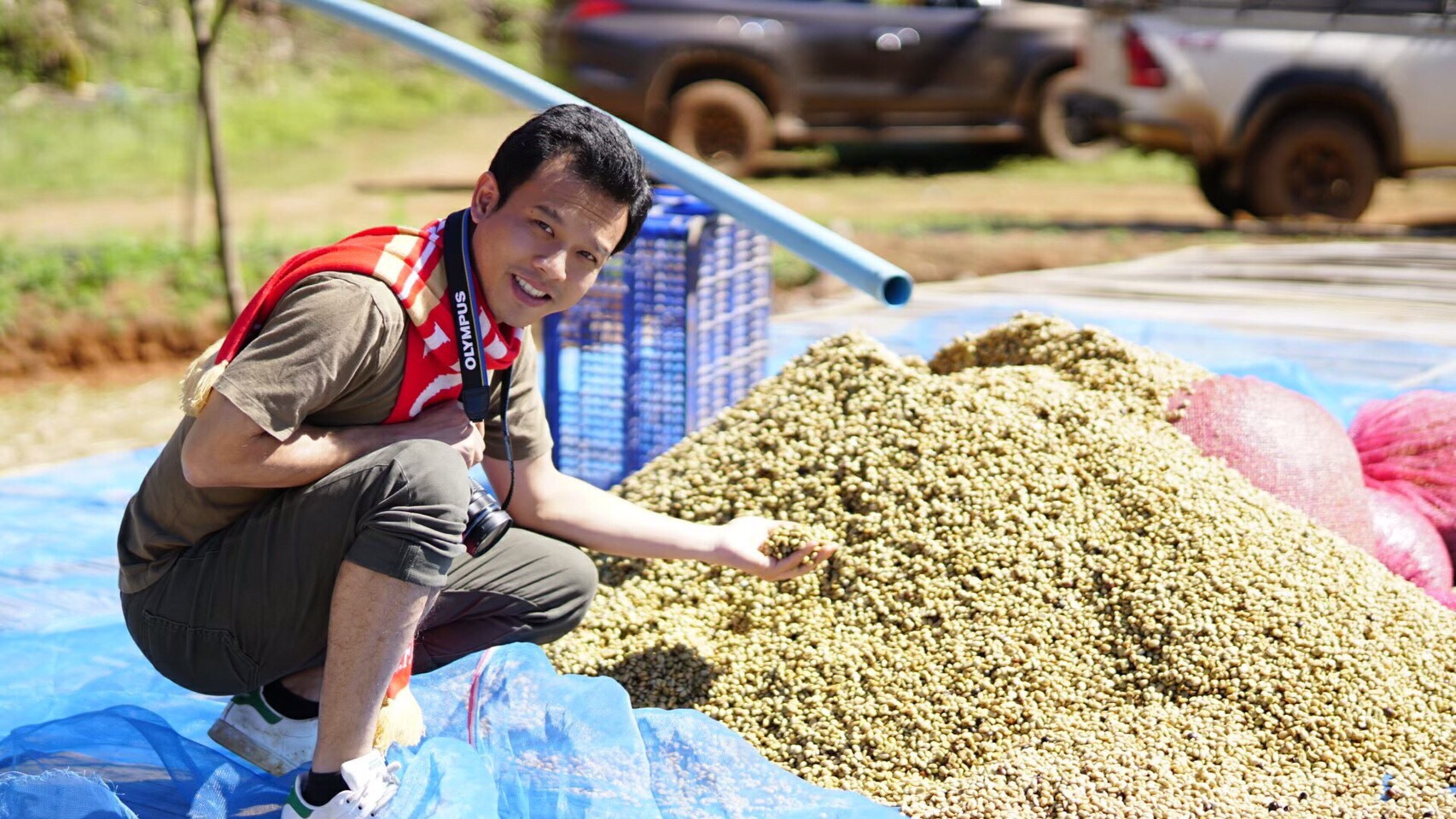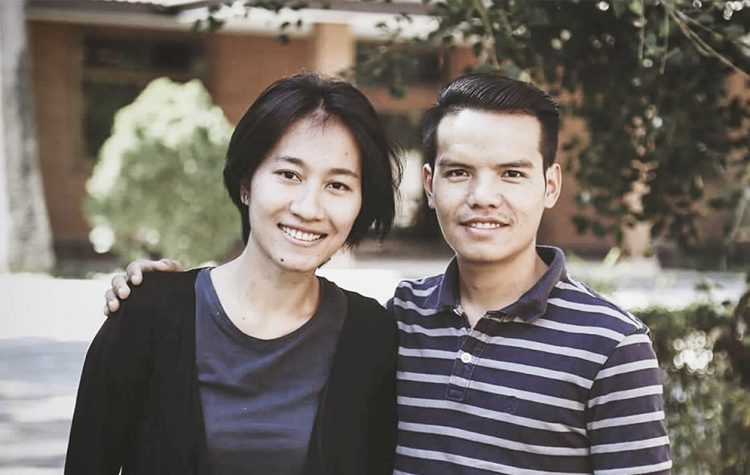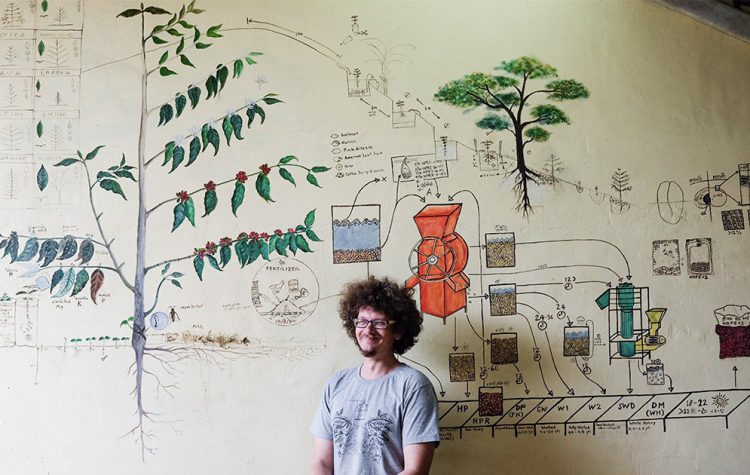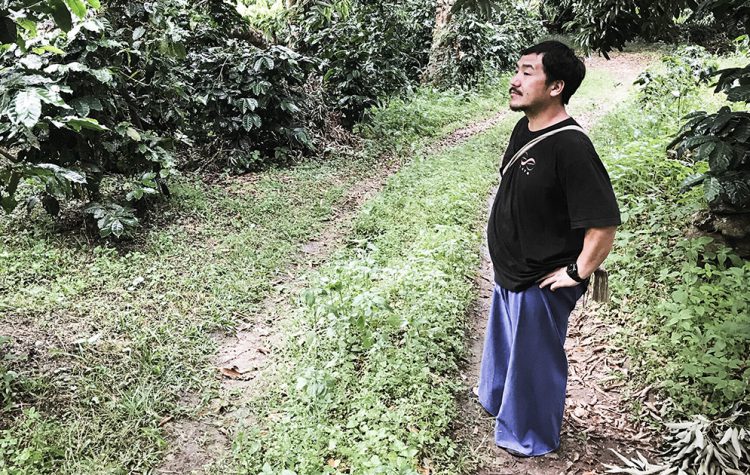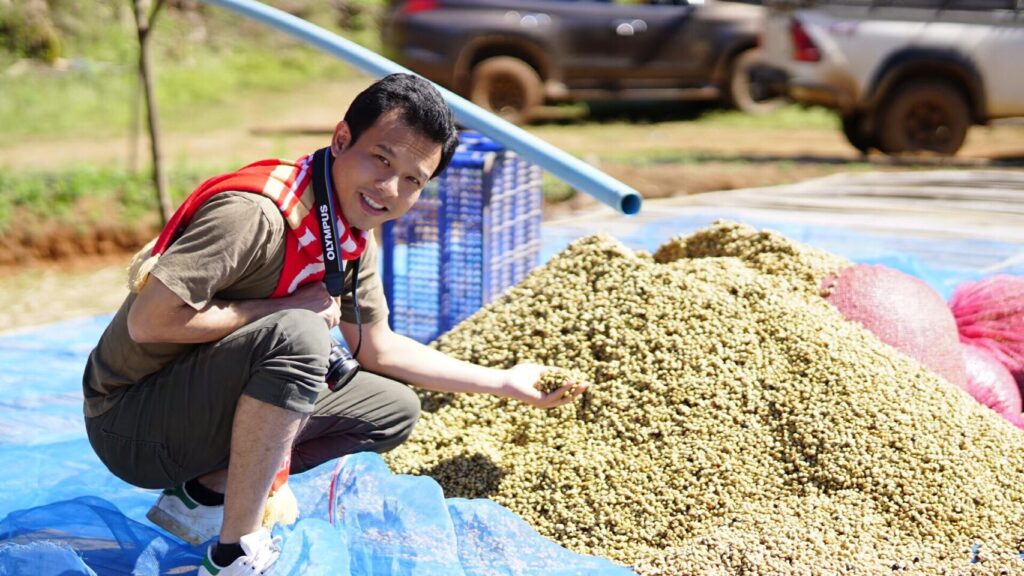
Aek Hengsritawach is a native of Bangkok who formerly worked as a Barista and is now a Processor and Connector. He was one of the first to travel up to Doi Sam Muen in Mae Wang, Chiang Mai, ten years ago to collaborate closely with local Thai farmers. While Aek is not local to Doi Sam Muen, we believe that his years of experience working with coffee farmers will help us learn more about this historic coffee-growing region!
Mr. Roots: From your previous role as a Barista in Bangkok, how did you start working in Doi Sam Muen?
Aek: I was interested in visiting a coffee plantation, so I asked a friend who sells coffee beans for a recommendation, and he suggested Doi Sam Muen. When I got the farmer’s contact, it was challenging to reach him because there was no phone coverage. I tried calling for over a year before he eventually picked up because he had traveled down from the mountains to buy stuff in town.
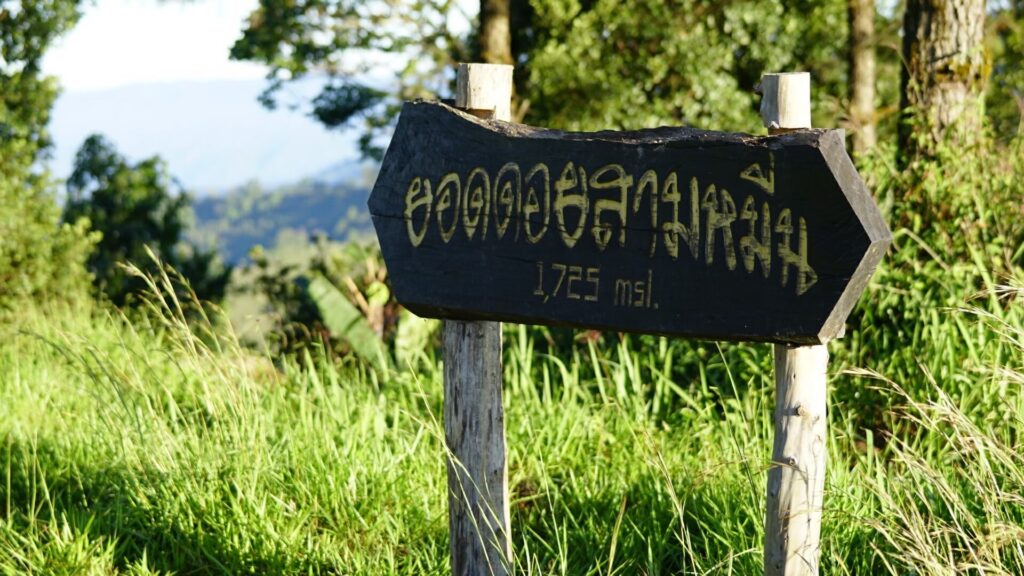
After talking to him, I learned he has been growing coffee since his parents’ generation. When I visited Doi Sam Muen, I loved the atmosphere; his house was in the center of the village. He buys all the coffee cherries from the community, so we discussed introducing his coffee to the world!
At that time, I started to learn about CQI, and we used this knowledge to develop coffee production methods. He was still using traditional methods, such as collecting all the cherries from the branch, which meant a lot of unused green cherries, or drying the cherries on the floor. Even the fermentation pond was a round cement than a standard square pond.
Mr.Roots: What were some obstacles you encountered during your first year there?
Aek: There were a lot of roadblocks. We had a village meeting on how to collect coffee cherries, and only around two people attended. They questioned why this method was so complicated and was a touch rigid in their thinking, but we didn’t give up and held an annual village meeting.
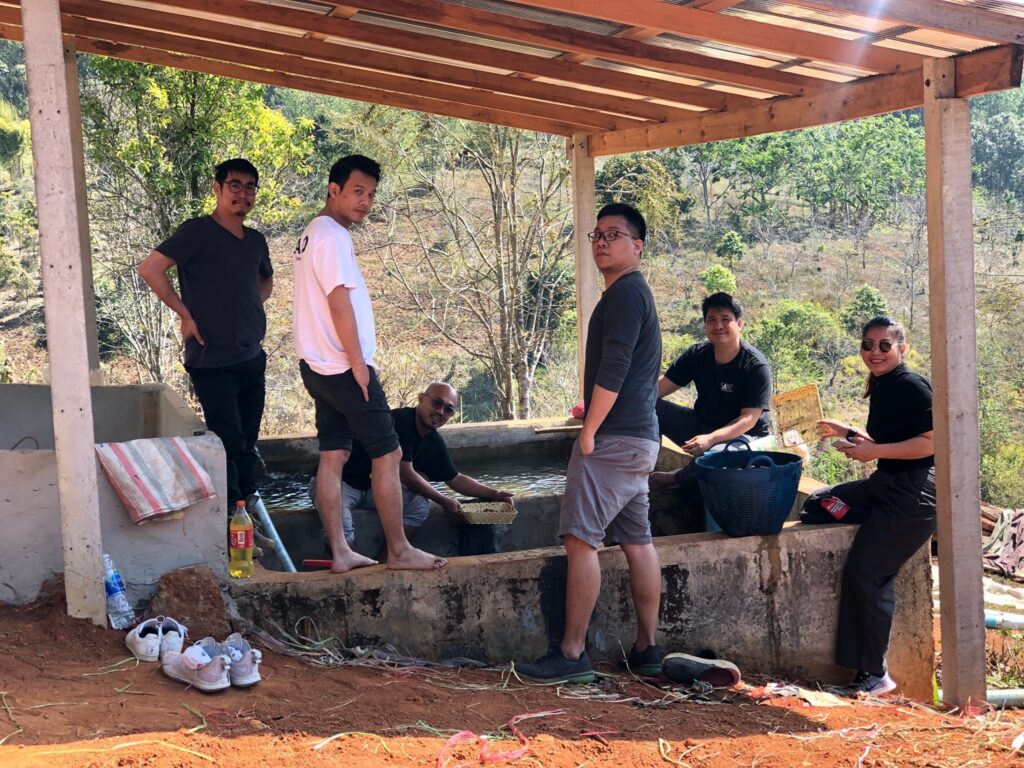
Until one year, when a class on ‘Q Processing’ opened up in Chiang Mai, we sent members from the village to study there. After they returned, those individuals became the focal point for distributing the knowledge they gained to the town’s people, acknowledging that the global coffee standard had changed and that they needed to adapt to succeed.
We’ve been acquiring all of the coffee from the community since 2016, and many houses started collecting only the red cherries we requested. We carried these cherries down for cupping in Bangkok and got great feedback, so we informed the villagers that many people were interested in the coffee because of the excellent tasting notes. Before COVID-19, the entire village attended our village meetings.
Mr.Roots: How does it feel to have the entire village listen to you in those meetings?
Aek: I believe we’ve proven ourselves to be the Connectors and that the community sees us as more than just a middleman. Previously, their perception of us was that we intended to buy their coffee cherries for cheap. Soon everyone realized that we were willing to pay a reasonable amount because this was their career, and we wanted them to have a better life.
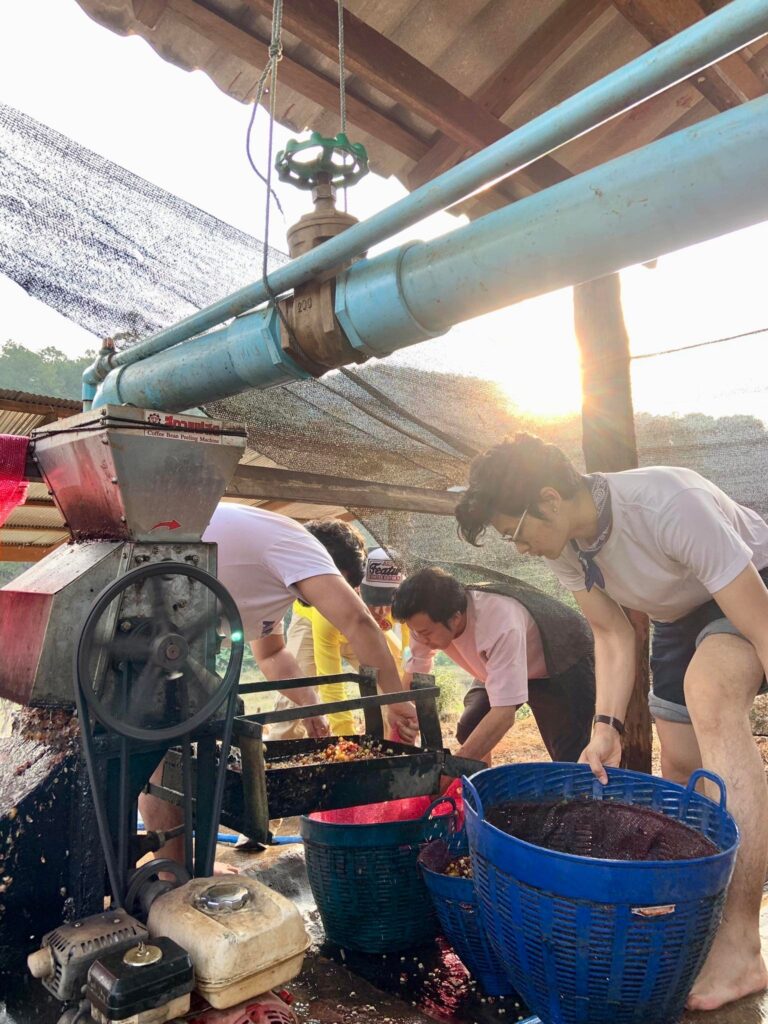
Mr.Roots: Could you introduce Doi Sam Muen to those unfamiliar with the area?
Aek: ‘Sam Muen’ or Thirty-thousand in Thai is derived from the Chinese word ‘Sanmen’ where ‘San’ means three and ‘Muen’ means door. This is because this is an area with three entrances, the first is Pai in Mae Hong Son, the second is Doi Luang Chiang Dao, and the third is Wiang Haeng, both in Chiang Mai.
Doi Sam Muen is a historical and traditional coffee-growing area, like many others in the northern region. The locals here are Chinese immigrants and Lishu people. Before King Rama IX started a coffee-planting project in 1977, there were already exciting coffee varietals here: Typica, Catimor, and Bourbon, which the government encouraged to be planted later.
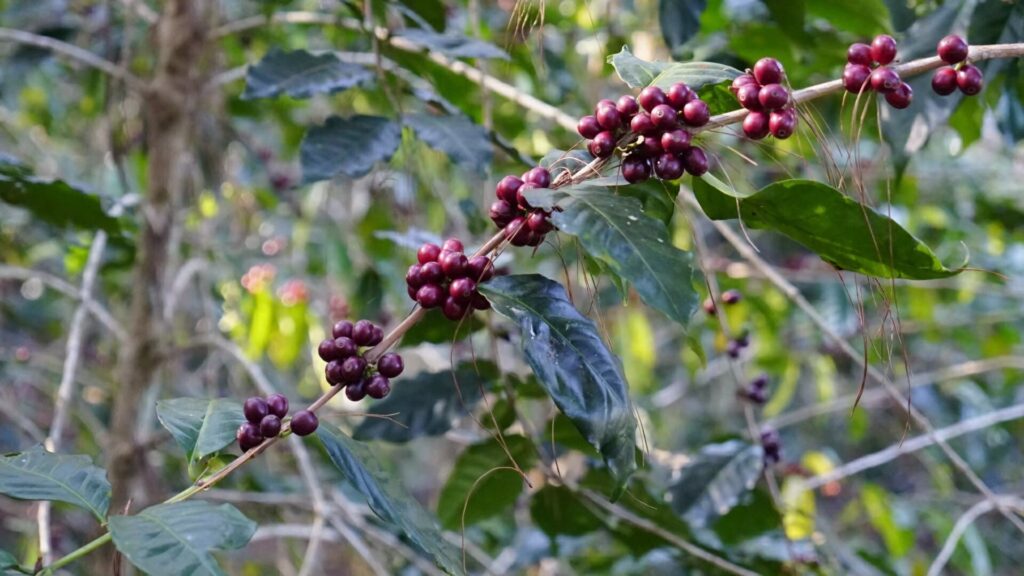
Doi Sam Muen’s forest is beautiful, lush, and fertile. We cultivate coffee at elevations ranging from 1,370 to 1,725 meters and are now experimenting with developing new fascinating coffee varietals such as Geisha Java and more. If the results are favorable, I’d like to invite local farmers to plant them as well.
Mr.Roots: What’s your goal?
Aek: I wish to enhance the reputation of this place and make it more well known, as well as improve the local people’s livelihoods . In the last 1-2 years, the villagers who used to sell cherries us have started selling them on their own. As a result, the purchase price of cherries rises because we have to compete to buy, and that competition is advantageous because it helps to develop the entire industry.
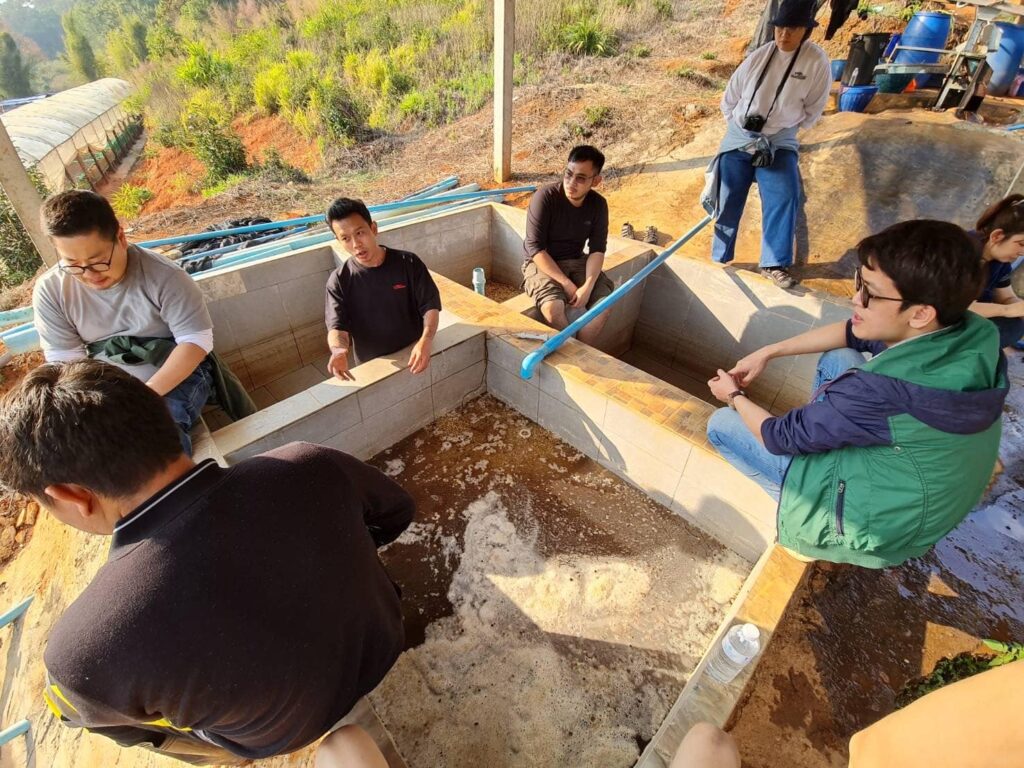
Mr.Roots: What are you most looking forward to in next year’s coffee harvest season?
P’ Aek: We’ll likely send coffee from Doi Sam Muen to coffee competitions next year because we’re getting positive feedback that our coffee is better with cleaner notes. I’ve also begun inviting Colombian coffee processors to collaborate with local farmers with the goal of developing new coffee processing methods that we’ve never seen before.





